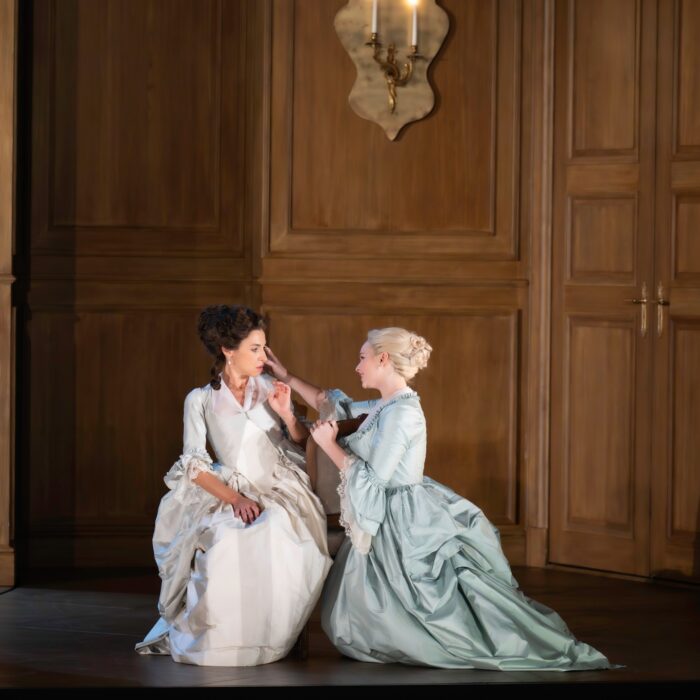
The Wonderful World of Opera Dogs: An Introduction
By Diana Burgwyn(Credit: PhotoAllegory of Sarolta Bán)
Opera and dogs have long had a special place in my heart. Opera came first—I was raised with it, studied it, and yearned to be an opera singer. Fortunately, I realized early on that I simply didn’t have what it takes. So I began to write about it, and that has been my major focus as a journalist over many decades.
Dogs came later. When Ivy, a four-month-old Labrador retriever with coal-black eyes and ears soft as velvet came to live with my husband and me, I was hooked.
I don’t remember when exactly I began to think of dogs and opera together. Maybe it was when I first heard this sad comment by Maria Callas: “Only my dogs will not betray me.” Or perhaps it was when I learned that Giuseppe Verdi had a tiny white Maltese named Lulu, whom he carried around under his jacket so that the dog wouldn’t catch a chill.
Whatever the impetus, I began to collect story after story of opera composers, singers, conductors, and stage directors who became deeply attached to their canine companions (and even a few who disliked dogs). I could trace them back to the days of the legendary 18th-century Italian castrato Farinelli, who, in more than one painting, is seen with a long-legged, lean dog, tan-colored—a sign of the singer’s noble position in life. And I followed dogs’ footsteps all the way to the present, with such stars as mezzo-soprano Anita Rachvishvilli from Tbilisi, Georgia, who reported that her pug Frankie sleeps on her lap while she has her hair and makeup done prior to performances.
The stories that I write about in this series have been culled from a large variety of sources: biographies and autobiographies (some of them so old they are out of print), newspapers dating back to the 1800s, interviews that I have held with opera professionals, and online communication with people as far off as Powys, Wales, where the Chihuahua-loving 19th-century soprano Adelina Patti lived. Can I vouch for the accuracy of every one of the stories? No. I have tried my best to seek out the most reliable sources, but some of the tales may well have become exaggerated in the telling over these many years.
I’ve chosen to present these stories not according to chronology but in a way that I hope will appeal to readers, sometimes jumping a century or two.
The year 2020, with the deadly coronavirus, political and economic crises, and serious threats to the art form that readers of OperaWire so love, has been a painful one for all of us. It is my hope that this series will bring some lightness and fun (along with occasional sadness) to my readers.
Categories
Special Features


